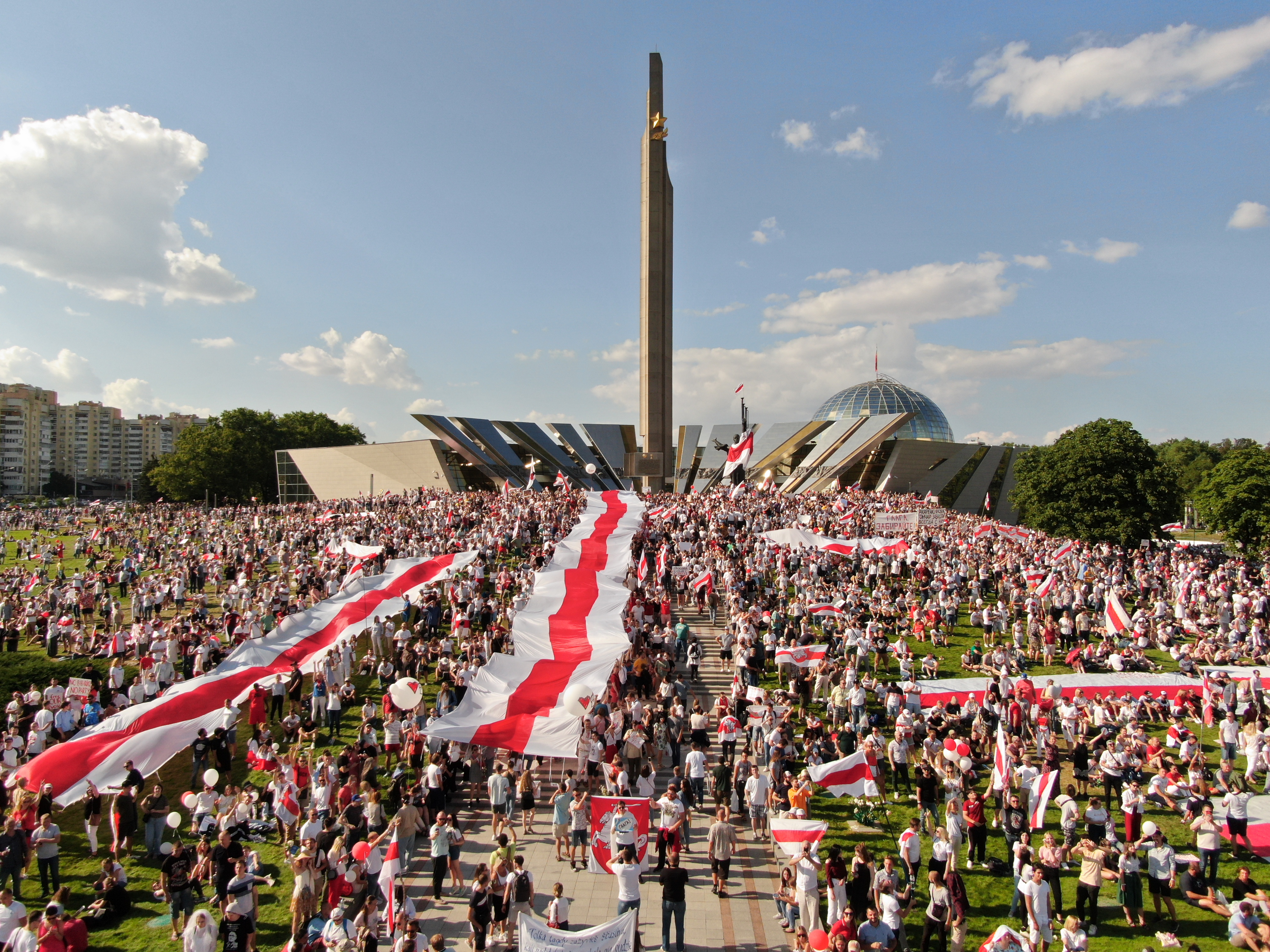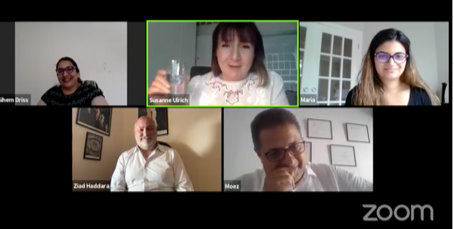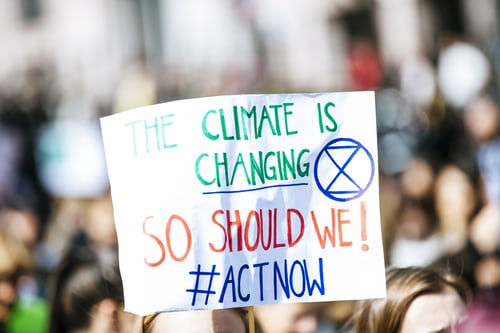| |
NECE NEWSLETTER 03 | 2020
Editorial
Dear Colleagues,
According to Karen Donfried from the German Marshall Fund the USA are suffering not from one but from three pandemics at this moment: the COVID-19 pandemic with its more than 170.000 casualties, a pandemic of racism and a third one of hate and divisions – bringing the country to the edge of a precipice – in her words. While we in Europe are watching the presidential campaigns with a mix of anxiety and hope, the massive opposition rallies in Belarus, the emergence of new personalities and almost unknown female leaders in the middle of a peaceful mass movement for democracy and freedom shows the power of universal values and rights which are at the centre of citizenship education. See the statement of our partner network EENCE below.
On August 24, we started our NECE CAMPUS (active until October 2020), a new digital format with more than 30 events and opportunities for learning and networking. The NECE team invites you and your colleagues to join the CAMPUS and check out the possibilities there. The CAMPUS will be preparing the NECE conference in Berlin ‘Reconnecting in a post pandemic world. Citizenship education for democracy and sustainability’, November 5-7, 2020. Everybody is invited to come to Berlin – though seats are limited to comply with COVID-19 distancing rules – that’s why we will offer many virtual meetings rooms and ‚campfires‘ for networking as well.
We are looking forward to a digital and offline festival of ideas and best practice – highlighting and lobbying for citizenship education as an essential public good and a right which needs to be recognized by the decision makers on all levels.
Stay tuned, stay well and join NECE 2020!
Christoph Müller-Hofstede (Federal Agency for Civic Education/bpb)
Anja Ostermann plus the NECE Team of labconcepts (Bonn/Berlin)

(Image: © Getty Images News, www.gettyimages.de)
|
|
 |
| |
NEWS about NECE |
|
 |
| |
NECE 2020 – #digitalNECE: Reconnecting in a post pandemic world. Citizenship education for democracy and sustainability.
The NECE CAMPUS 2020 offers a wide range of digital learning and networking opportunities for educators, experts in citizenship education, civil society actors and other citizens.
The CAMPUS is preparing the agenda for the NECE Conference in Berlin, November 5-7 2020. The conference is organized within the framework of the German EU presidency which runs from July to December 2020; it will offer digital and offline formats to highlight the essential role of citizenship education for the recovery of Europe.
+++ Find out more and Register NOW for our upcoming events in AUGUST, SEPTEMBER and OCTOBER +++
The NECE CAMPUS will focus on 3 thematic clusters:
CLUSTER 1: Redefining citizenship education: Empowerment through virtual collaboration
CLUSTER 2: Restarting Europe: The power of citizenship education and civic engagement
CLUSTER 3: Rethinking the world: Citizenship education for sustainability
The NECE CAMPUS invites you to its different formats and speakers and presenters from all over Europe – presenting best practice in teaching and Leasing citizenship education, training opportunities and ideas for the future of democracy and sustainability. Meet our experts, trainers and practitioners, and find out more about tools that may help us to work together in virtual space.

|
|
| |
INSIDES FROM NACE (Networking Arab Civic Education)
A virtual coffee meeting in Tunisia and Lebanon with NACE members

NACE is glad to have joined a bpb:connect online talk on Monday, 27th July! “Over tea in Tunis and Beirut - a talk about the situation in Tunisia and Lebanon with a focus on civic education in times of crisis” was moderated by NACE member Susanne Ulrich. Moez Ali from Tunisia and Ziad Haddara from Lebanon, both NACE members, activists and practitioners in CE, gave insights into the recent situation together with Sihem Drissi and Maria Chelala from the academic sector. The session highlighted similarities in the issues faced during the COVID crisis but also showed that Tunisia and Lebanon are dealing with different challenges. Both are countries in transition but at a different level and with different challenges regardless of the COVID crisis. As a similarity, it was emphasized that civil society made a major contribution to handling the crisis, but there is still much work to do in the field of civic education. All experts highlighted the importance of critical thinking as a key value for societies in crisis or transition, as well as the importance of a strong feeling of national identity and human values. Many aspects were raised that are worth discussing further. The video is still online and available here. We are looking forward to deepening the exchange on challenges, solutions and initiatives within the NACE Community and beyond together with bpb:connect after their summer break!
|
|
| |
INSIDES FROM EENCE (Eastern European Network for Citizenship Education)
Work during COVID-19, second edition and Belarus challenge
The effects of the COVID-19 pandemic are shaping public life and the work of citizenship educators. The challenges posed by the virus vary from region to region, and the situation becomes even more challenging when the political situation explodes like in Belarus. Nevertheless, the working groups of EENCE are creating new formats and possibilities for citizenship education in the countries of the Eastern partnership and Russia. More international events, a quick and flexible response if the speakers or participants from Belarus do not have internet access, more networking and new know-how, e.g. on how to deal with online platforms, how to structure professional educational events, how to reach target groups under the current special conditions, how to not feel alone and how to support each other. New topics and new challenges, new mistakes and new expertise. The latest developments in the world of EENCE can be found here:
EENCE condemned violence in Belarus in a statement and on social media. Read the statement here.
Crossing borders: Participatory budgeting
Register NOW for bpb:connect on 8.09.2020, 3 pm (CEST), a live stream and meeting via Zoom! For the live stream and more information: www.bpbconnect.eu
Read more about EENCE’s activities.
|
|
| |
INSIDES FROM NECE partner projects
More solidarity in schools through play and critical thinking
School with Class Foundation is a non-profit organisation based in Warsaw. Its project “Let's play the Fraternity card” in Europe emphasizes the importance of coexistence of various ideas, religions, races, status groups, etc. through the simple activity of pupils sending messages of solidarity to random people in their communities, resembling the idea of a 'message in a bottle'. Pupils are trained in critical thinking and photo analysis prior to writing their messages of solidarity. Read more and find out about the experiences of pupils, parents and teachers with the project.
How do you imagine Europe after the COVID Crisis?
Imagine Europe 2020 invites young people from all over Europe and beyond to project their vision of Europe after the COVID crisis, showing how European solidarity and active participation can help us adopt more sustainable lifestyles while making Europe more resilient to future crises. Participants choose a media product of their choice including video, podcasts, writing, photography, poetry, music, design, and more. Winners will receive the chance to participate in online and offline events with European decision- and change-makers.
#MeetEU: Pan-European discussion platform
What began as a monthly discussion has now become a weekly event. MeetEU makes available discussions and workshops on the Discord platform. You can propose topics for discussion. Find out more about MeetEU.
Vienna 2020 launches the European Capital of Democracy initiative
Similar to a Capital of Culture, a European Capital of Democracy – a stage and inspiration for the future of democracy – will be selected for every year, starting in 2021. On 18 September 2020, mayors and other politicians, artists and engaged citizens will join the co-founders of the European Capital of Democracy initiative for a launch event in Vienna. Find out more.
|
|
| | |
Restarting Europe
| |
 |
| |
Earth Speakr – An Olafur Eliasson project at the heart of the German EU Presidency 2020 programme

The project's playful app and interactive website invites children and young people to share their visions for the future and Europe. The project is available in all European languages. Kids complete the work of art started by Olafur Eliasson and hopefully they will teach the grown-ups to be more environmentally aware. Find out more about the project. (Image: © Olafur Eliasson, Earth Speakr, 2020).
German Presidency of the EU (July – December 2020)
On 1 July 2020 Germany took over the Presidency of the Council of the European Union. Find all information about the German Presidency, its news and programme here. Framed by the pandemic as a worldwide crisis Germany’s main challenge will be the economic and social consequences of COVID-19 throughout Europe. NECE 2020 will strive to highlight the indispensable role of citizenship education and civil society in the ongoing restart and future transformation of Europe.
Never waste a good crisis?!
NECE talked to Minna Ålander, a former student assistant at the Federal Agency of Civic Education/Germany and now a Research Assistant at SWP, the German Institute for International and Security Affairs, about the priorities of Germany until December:
NECE: Could you briefly outline the main priorities and ideas for the German presidency? What can be achieved within such a short timeframe?
Minna Ålander: Due to the unprecedented circumstances caused by the COVID-19 pandemic, Germany had to rethink its presidency entirely. The main focus shifted from the originally planned EU-China-relations to the management of the COVID-crisis and the subsequent economic recovery. This remains the greatest challenge to the German presidency as infection rates are on the rise again and a second wave is … Read more.
NECE: How would you evaluate the results of the EU summit in July – a historic step towards more integration or more of the muddling through approach?
Minna Ålander: As outlined before, the circumstances under which the summit took place were unprecedented. The almost epic duration of the July negotiations is indicative of how much was at stake and how contested the issues are. A certain degree of ‘muddling through’ is inherent to the EU as all the important decisions require consensus among its members. Finding even a least common denominator is …. Read more.
‘Citizens Take over Europe’ versus ‘Conference on the Future of Europe’
NECE asked Niccolò Milanese, member of the NECE Advisory Board and co-organiser of Citizens Take over Europe about the role citizens and citizenship education need to play in the transformation of Europe.
NECE: Niccolò, what is the Conference on the Future of Europe and why is it important for citizens and European citizens?
Niccolò: The Conference on the Future of Europe was announced by the President of the European Commission Ursula Von Der Leyen following the results of the European elections last year, in order to give a ‘new push for European democracy’ and ensure citizens are at the heart of building the future of Europe. It was supposed to start on 9 May 2020, but it has been delayed both by the pandemic and the … Read more.
NECE: What role could citizenship education play in the restart of Europe?
Niccolò: The citizenship education a society gives itself is an image of the future world and society it wants to create. At the moment, citizenship education in general is a weak priority across Europe, and the European dimension of citizenship education is barely present at all. The pandemic has demonstrated all over again that … Read more.
NECE: Neither in the current MFF for the EU (2021-2027) nor in the NextGenerationEU programme did citizenship education get lots of attention. How could NECE and civil society organisations work to change that?
Niccolò: It is extraordinary given its title and ambition that the NextGenerationEU programme does not talk about citizenship education at all, and the subject is also missing from the plans for the European Education Area 2025. Two years before the 30th anniversary of the Maastricht Treaty which introduced European citizenship, now really ought to be the time for the Commission and member states to … Read more.

(Image: © Citizens Take over Europe)
|
|
| |
Citizen-centred Conference on the Future of Europe
European citizens want a more active role in European policy-making. In the wake of the “Conference on the Future of Europe”, the “Citizens Take Over Europe” coalition is designing a Citizens’ Conference on the Future of Europe which will involve individuals, experts and stakeholders from all parts of society. Find out more about the coalition’s aims and values and be part of the Citizens’ Conference.
| |
| |
The European Way for a Better Future
CIVICO Europa was born in the wake of the May 9 movement where individuals came together to launch a common reflection on the future of the EU. As a first act CIVICO published the report “The European Way for Better Future” to react to threatened democracies and to call for stronger representation and participation of European citizens. CIVICO Europa is a non-profit, independent and transnational association that is creating new impulses for the future of Europe. Find out more.

(Image: Markus Spieske)
| |
| |
Cutting civil society organisations’ funding by 25 per cent as a response to their help to cope with the pandemic
Against the European Parliament’s demand to almost triple the Rights and Values programme to support NGO activities, the European Commission proposed reducing this funding by about 25 per cent. Read more in the article by Alberto Alemanno and Szymon Ananicz.
| |
| |
5th Annual Conference on European Citizenship, December 2020
In co-operation with NECE, the ECIT Foundations’ Annual Conference 2020 focuses on European Citizenship and the development of citizens’ rights on a political, social and environmental level, also considering the results of the NECE Conference 2020. Find out more and register now!
| |
| |
Acting in solidarity as a way out of the crisis? Civil society expectations remain unfulfilled
The European Civic Forum comments on the decisions made on the EU multi-annual budget. In line with the European Parliament’s resolution, the ECF considers the Council decision to be unacceptable. The values of the European Union were swept under the table behind closed doors. The European Civic Forum calls on democratic civil society to make its voice heard. Read the whole statement here.
| |
| | |
GOOD PRACTICE: IDEAS & EXAMPLES
| |
 |
| |
filterbubble: How deeply are you stuck in your bubble?
 The Zentrum fir politesch Bildung developed an interactive test that enables users to find out how deeply they are stuck in their filter bubble. This has been done with the support of the Luxembourg initiative for internet security BEE SECURE. Filter bubbles are information bubbles that are created through the personalisation of the internet. The user’s interests and opinion are permanently mirrored on the web and information which does not correspond to their own opinion is isolated. The test provides specific yes/no questions. At the end, users find out how deeply they are stuck and what they can do to burst their bubble. Check it out now! (Image: Marc Sendra Martorell)
The Zentrum fir politesch Bildung developed an interactive test that enables users to find out how deeply they are stuck in their filter bubble. This has been done with the support of the Luxembourg initiative for internet security BEE SECURE. Filter bubbles are information bubbles that are created through the personalisation of the internet. The user’s interests and opinion are permanently mirrored on the web and information which does not correspond to their own opinion is isolated. The test provides specific yes/no questions. At the end, users find out how deeply they are stuck and what they can do to burst their bubble. Check it out now! (Image: Marc Sendra Martorell)
|
|
| |
Vienna 2020 launches the European Capital of Democracy initiative
Similar to a Capital of Culture, a European Capital of Democracy – a stage and inspiration for the future of democracy – will be selected for every year, starting in 2021. On 18 September 2020, mayors and other politicians, artists and engaged citizens will join the co-founders of the European Capital of Democracy initiative for a launch event in Vienna. Find out more.
|
|
| |
European survey about work in civil society organisations: Unsung heroes?
This online survey is part of the project THE UNSUNG HERO DIALOGUES, a partnership conducted with the support from the Europe for Citizens Programme. We are a group of educational organisations and activists from 7 different countries with a background in working in European cooperation projects, notably in the fields of Human Rights education and promotion, non-formal education and socio-cultural intervention. This survey aims at getting a better and broader understanding of the labour situation among people working in the civil society field all over Europe, which has become increasingly difficult during Covid-19. Please find the English version here.
|
|
| |
Stay tuned: Launch of the European Citizens Initiative (ECI) on September 1, 2020
Check out the programme and register for the launch event of the ECI on 1 September at 10:30 pm! Voters without borders are collecting signatures to empower European citizenship, with the aim of all EU citizens being recognized as equal and having full political rights.
|
|
| |
UNESCO & Council of Europe online survey: Student voice during the pandemic

The Council of Europe, in cooperation with UNESCO, have launched an online survey on student voices during the COVID-19 pandemic. The survey is aimed at secondary school teachers from Europe, the Middle East and North Africa. The online survey, available in English, French and Arabic, will only take around 10 minutes to complete. So, if you are a teacher in a secondary school in the above-mentioned regions, this is your opportunity to give your opinions and share your experiences by clicking here.
|
|
| |
We need active citizens: Civic Europe – a new project for capacity building in Central and South-Eastern Europe
Civic Europe supports individuals, initiatives and civil society organizations in the regions of Central, Southern and Eastern Europe challenged by low civic literacy and a lack of civic infrastructure. We offer mentoring and funding to implement project ideas and to foster and promote civic activities in the region. Support comes in two ways: The Idea Challenge funds and mentors up to 15 lighthouse ideas per year with grants of up to €50,000 each. Winning projects of the idea challenge build bridges and function as bright horizons and inspiration for bringing people together in times of segregation and animosity. You can read more about the Idea Challenge here.
The Capacity Building programme fosters the capacity and ecosystems of locally rooted organizations and individuals active in the fields of civic education and civic engagement. It helps them establish themselves as actors in their communities by providing learning spaces and seed project funding in Bulgaria, Hungary, Poland and Romania. It is co-created and implemented with local partners. You can read more about the Capacity Building strand here and also enjoy a story on the pilot programme in Bulgaria! Civic Europe is an incubator for locally rooted civic initiatives, organizations and individuals in Central, Eastern and Southern Europe realized by MitOst and the Sofia Platform, funded by Stiftung Mercator.
| |
| | |
EU PROGRAMMES AND EUROPEAN INITIATIVES
| |
 |
| |
European Citizens’ Initiative Forum: Learn - Discuss – Connect – Seek advice
Are you looking for new partners or do you simply want to network with other initiatives? Check out the European Citizens’ Initiative Forum. You can get various information about other initiatives, make some new connections or learn how to put your initiative in perspective to get your point on the EU policy agenda! Find out more.
| |
| |
The European Wergeland Centre (EWC)
The EWC is an educational resource centre for intercultural understanding, human rights and democratic citizenship. It focuses on five action areas to build and sustain a culture of democracy and human rights in education. Find out more about the EWC and current projects.
| |
| |
Forum: Thinking across borders
 Forum is a common European platform where European citizens get together to exchange and debate current issues and where language barriers are overcome for the greater good. (Image: Alina Grubnyak)
Forum is a common European platform where European citizens get together to exchange and debate current issues and where language barriers are overcome for the greater good. (Image: Alina Grubnyak)
| |
| | |
Podcasts & further readings
| |
 |
| |
Suggested reading: The End of The Liberal Mind – Poland’s New Politics
In his foreword, Ivan Krastev writes: “All the contributors to this volume regard contemporary Poland as a political laboratory rather than a deviation from established European norms. This is not another book about the populist turn in Central Europe; rather, it's about illiberalism as an experiment in a political environment torn apart by the contradictions of the 21st century.”. Edited by Karolina Wigura, member of the NECE Advisory Board, and Jarosław Kuisz. Available now!
| |
| |
Bridge47 Networking Podcast: The future of education in Europe with Brikena Xhomaqi (LLLP)
Check out the Networking Podcast of Bridge47 on Soundcloud. In episode two they talk to the director of the Lifelong Learning Platform (LLLP) Brikena Xhomaqi about citizenship education in Europe, its means and its importance for the future and times of crisis. Listen to the full episode!
| |
| |
Podcast: Another Europe is Possible
Listen to the Another Europe podcast. Another Europe is Possible provides various episodes that talk about and debate current topics within different contexts. Check out who they will be talking to next. Find out more.
| |
| |
Please note: Any links provided are for information and discussion only. The views
expressed are not necessarily shared by NECE as a networking platform.
| |

|
| |
Wanted: Your Contribution to the NECE Newsletter!
|
|
 |
| |
Are you involved in citizenship education in Europe or North Africa? Are you running projects aimed at promoting democratic values and tolerance in your country or region? Do you think NECE (and the readers of this Newsletter) should know about your project and do you want to enlist their support/advice? We’d love to hear from you! Send your contributions, ideas, comments, and questions to: nece-newsletter@labconcepts.de or share your stories and projects via Social Media using our Hashtag #digitalNECE.
|
|
 |
| |
|
|
 |
| |
You are receiving the NECE Newsletter because you subscribed and have confirmed that you wish to receive information about the NECE-Networking European Citizenship Education initiative. To unsubscribe please click here.
The NECE Newsletter is published regularly and distributed via e-mail. It is available to anyone on the www.nece.eu website. The newsletter is published by the Bundeszentrale für politische Bildung (Federal Agency for Civic Education), which is responsible for its content according to definitions laid down by the German Telemedia Act.
Further contact information:
Federal Agency for Civic Education
Adenauerallee 86
53113 Bonn (Germany)
www.nece.eu
Responsible for the content:
Christoph Müller-Hofstede
mueller-hofstede@bpb.de
Editorial support:
Susanne Pöschko & Sabrina Räpple
nece-newsletter@labconcepts.de
If you have any questions please e-mail to: nece-newsletter@labconcepts.de
|
|
 |








 The
The